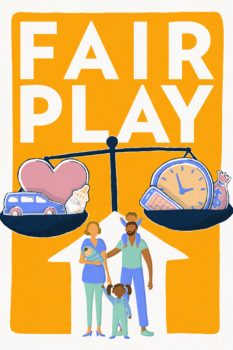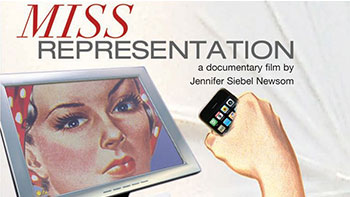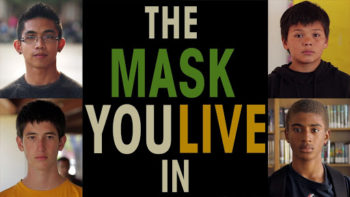I am fair skinned.
Fair skinned enough that I get mistaken for white more often than not.
Fair skinned enough that no one follows me around at stores to make sure I’m not shoplifting.
Fair skinned enough that I remember feeling like I was seeing myself on screen in Belle in 1991’s Beauty and the Beast (I liked how she showed you could be pretty and smart). I used to listen to the soundtrack on cassette while getting ready for school. It was the first movie I saw in a theater.
Which is all to say, I’m fair skinned enough that I’ve seen women who look like me in media my entire life.

And so when I started watching Jane the Virgin, I didn’t know think there was a hole to fill. I thought I’d been represented. That I was one of the lucky ones who gets to see herself on screen (BTW – I was wrong. Women reached a HIGH of 30% protagonists in film in 2016 and that was DECADES after my childhood). I’d had Belle after all. And while not too many other plucky heroines come to mind from my childhood, I still felt represented. Seen in a way my brother and cousins and aunts and dad were not.
And yet.
On Jane the Virgin, there was my extended family. I saw my tios, my abuelita. There was a family with a complicated relationship to Catholicism, no one all saint, slut, or sinner. There was a family that was brown but not gang members. Who spoke Spanish and English. A family whose matriarchal line was complicated, sympathetic, and human. There was a family with ego invested in cooking (yes the Villanueva’s are more arepas while the Escobars are more tamales, but the principle is the same). There was a family of immigrants and their descendants still grappling with what all that means. There was a family that I had never seen before on TV but see everyday in real life.
And it felt like breathing out. Like relaxing a muscle you didn’t know you kept flexed. And I, with my fair skin, am so privileged in so many ways.
It has been revelatory, watching Jane the Virgin. Latinas are one of the most underrepresented groups on screen, silver or small. As Gina Rodriguez, the titular star of the show recently said at the SAG awards, “[Latinos and Latinas] do make 55 million plus in the country. No big deal. You should throw us in a movie or two. It would make sense. We do buy one in every four tickets, every single weekend, and make sure that your movies do well.”

And it’s not just about race. I’ve become a mother while the show has aired and while there are plenty of shows depicting motherhood, there’s something about how Jane the Virgin handles it that’s different. For one, there’s multiple models of successful motherhood. I’ve watched both Jane and Petra become moms on the show and both struggle and succeed in different ways. Jane bonded immediately with her baby while Petra faced postpartum depression and feelings of inadequacies. Yet the show neither punished nor rewarded either response, treating both as normal and neither as defining characteristics. As the children age, it’s Jane’s little one who has behavioral issues, but again, his behavior isn’t a negative reflection on Jane. It is a part of life. You see on Jane the Virgin, women get to be imperfect mothers with dreams unrelated to motherhood. And that’s portrayed as normal, as sympathetic, as healthy. Watching these characters negotiate new motherhood has given me permission and room to better chart my own course and I’m thankful for it. I also imagine that I am not the only one.

And finally as a little girl who wanted to be a writer, I see so much of myself in Jane. The grown me is inspired by her going after that seemingly impossible dream, by her making progress and her encountering obstacles. It’s such a risk to write, exposing your inner self and your thoughts to a world full of critics and trolls. Watching Jane do it, a girl who could be part of my family, makes me feel like I can do it too. Look at me now – I’m literally writing something! Let me speak for English majors everywhere when I say this particular courage is hard to come by.
Watching Jane the Virgin, I see myself and my family on screen and it means something profound to me. You may say the show is an over-the-top telenovela, but I say there’s a truth to it that I haven’t seen anywhere else. It’s a show that addresses immigration with heart and compassion. That centers women of color when we’re still about as likely to see an alien as we are a Latina on screen. A show whose stars speak out and advocate for the issues I care about (thanks Justin, thanks Gina). A show I’m proud to be a fan of.

So, here’s to tuning in tonight when Jane the Virgin FINALLY returns! I’ve been waiting. 🙂



